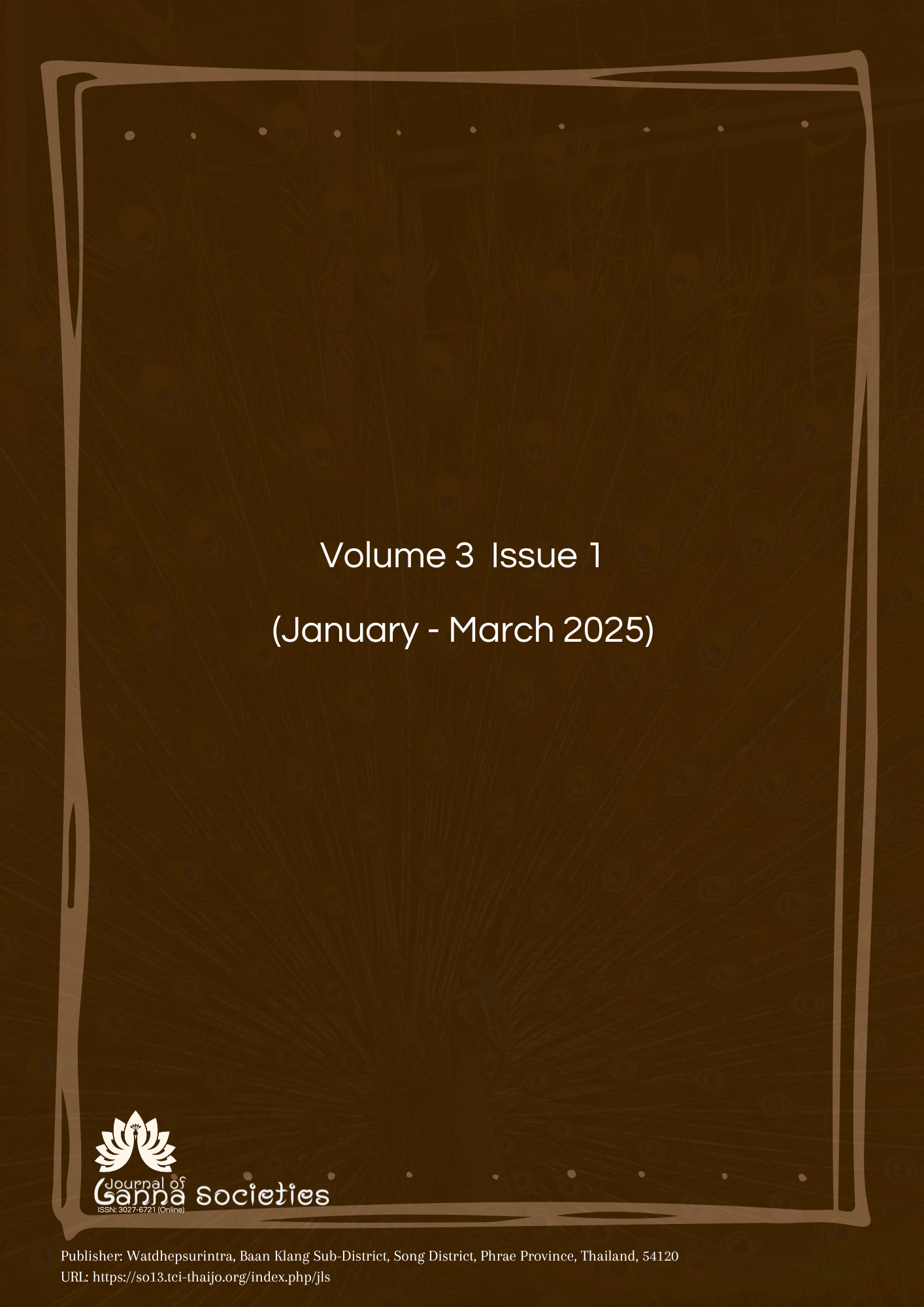Guideline Buddha-Dhamma Application for Promoting People’s Participatory Political Behavior in Election Local Administrators of Jarim Sub-District Municipality, Thapla District, Uttaradit Province
แนวทางการประยุกต์หลักพุทธธรรมเพื่อส่งเสริมพฤติกรรมทางการเมืองแบบมีส่วนร่วมของประชาชนในการเลือกตั้งผู้บริหารท้องถิ่นเทศบาลตำบลจริม อำเภอท่าปลา จังหวัดอุตรดิตถ์
Abstract
The purpose of this academic article is: 1) To study the political behavior of people in participating in local government elections. 2) To propose guidelines for applying Buddhist principles to promote participatory political behavior among citizens in the election of local government executives in Charim Subdistrict Municipality, Tha Pla District, Uttaradit Province Found that Government agencies should regularly organize meetings with communities to explain laws and the rights and duties of citizens under the constitution, particularly regarding local elections. These meetings should have clear objectives and formats to ensure that citizens fully understand and actively participate. It is essential to provide official information to the public in advance to foster readiness and prevent disengagement. Engaging meetings will encourage citizens to participate and listen attentively throughout the process. To foster unity within the community, it is necessary to establish clear and fair regulations. Rules related to local elections must not conflict with national laws and cannot be arbitrarily changed. Well-defined regulations will contribute to the progress of both the community and the organization. Additionally, community leaders should serve as role models, demonstrating morality, ethics, and impartiality in their administration to build trust and respect from the public. Promoting gender equality is also crucial. Women should be given equal opportunities to participate in politics, as they possess knowledge and capabilities no less than men. Government agencies should encourage citizens to be mindful of maintaining political event venues and help ensure order during elections. Furthermore, citizens should show respect and provide assistance to those performing election duties, while also supporting individuals with knowledge and integrity to carry out these responsibilities. This will help ensure that elections are conducted smoothly and fairly.
References
กรมส่งเสริมการปกครองท้องถิ่น กระทรวงมหาดไทย. ระบบศูนย์ข้อมูลเลือกตั้งผู้บริหารสมาชิกสภาท้องถิ่น และทะเบียนองค์กรปกครองส่วนท้องถิ่น (อปท.) จำนวนผู้ออกมาใช้สิทธิในการเลือกตั้งผู้บริหารท้องถิ่นเทศบาลตำบลจริม. 2564. เรียกใช้เมื่อ 10 มีนาคม 2568 จาก https://ele.dla.go.th/public/score.do
บุญร่วม เทียมจันทร์ และศรัญญา วิชชาธรรม. (2562). รัฐธรรมนูญแห่งราชอาณาจักรไทย พุทธศักราช 2560. พิมพ์ครั้งที่ 6. กรุงเทพมหานคร : สำนักพิมพ์ THE LAW GROP.
ทิพาพร พิมพิสุทธิ์. พัฒนาทางการเมือง. กรุงเทพมหานคร : มหาวิทยาลัยรามคำแหง, 2551.
พระพรหมคุณาภรณ์ (ป.อ.ปยุตฺโต). (2558). พจนานุกรมพุทธศาสตร์ ฉบับประมวลธรรม พิมพ์ครั้งที่ 33. กรุงเทพมหานคร : สำนักพิมพ์ผลิธัมม์ ในเครือ บริษัท สำนักพิมพ์เพ็ทแอนด์โฮม จำกัด
วรทิพย์ มีมาก และคณะ. (2547). หน้าที่พลเมืองในระบอบประชาธิปไตย อันมีพระมหากษัตริย์ทรงเป็นประมุข. กรุงเทพมหานคร : รำไทยเพรส.
วิศิษฐ์ ทวีเศรษฐ และสุขุม นวลสกุล. (2543). การเมืองและการปกครองไทย. พิมพ์ครั้งที่ 14. กรุงเทพมหานคร : โรงพิมพ์มหาวิทยาลัยรามคำแหง.
มหาจุฬาลงกรณราชวิทยาลัย. (2539). พระไตรปิฎกภาษาไทย ฉบับมหาจุฬาลงกรณราชวิทยาลัย. กรุงเทพมหานคร : โรงพิมพ์มหาจุฬาลงกรณราชวิทยาลัย.
Myron Weiner. (1974). Political Participation: Crisis of the Political Process, in L., Binder and others. Crises and Sequences in Political Development. N.J.: Princeton University Press.
Sidney Verba and Norman H Nie. (1974). Participation in America: Political Democracy and Social Inquiry. New York: Harper & Row.
Downloads
Published
How to Cite
Issue
Section
License
Copyright (c) 2025 Journal of Lanna Societies

This work is licensed under a Creative Commons Attribution-NonCommercial-NoDerivatives 4.0 International License.





